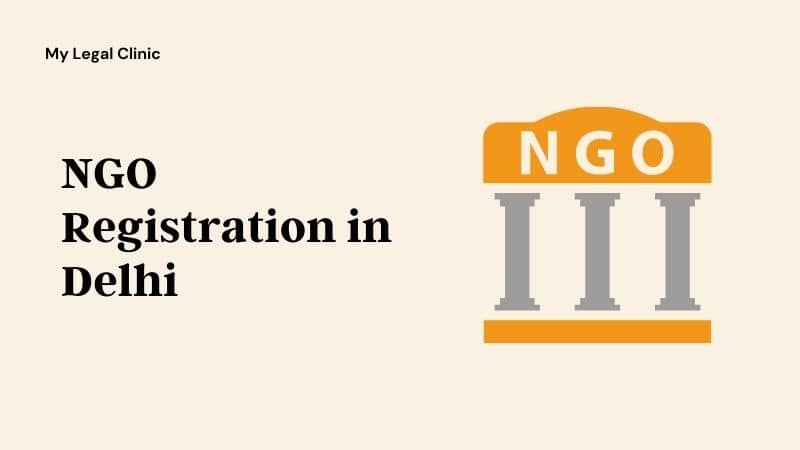

When you are involved in causes for the betterment of society and start an NGO, you must register it so that it obtains legal status. NGO registration in Delhi might seem tedious if you don't know who to contact and what to do. While with your NGO, you aim to help vulnerable societies without earning a profit, registering it will allow you to interact with donors and other organizations at an official level.
Even though many political groups and religious entities establish NGOs to act as a front for their interests, an NGO at its core is not aimed to shell out profits to its members but to improve the wellness & welfare of the underprivileged section of the society. Even if some NGOs are front for political or religious entities, all the profits should be invested in the social cause they are helping better.
You can fulfill the NGO registration process in Delhi, either online or offline. You first need to know that you can register an NGO in India as one of three disciples: Societies, Trust, and Section 8 companies. So here is how you can decide which disciple your NGO would fall under:
If your NGO is focusing on eradicating poverty, focusing on giving education to the underprivileged, or providing medical relief, then your NGO would be defined as a trust NGO. You cannot discontinue or terminate the NGO unless all the beneficiaries approve it for certain reasons. Normally no national rules and regulations apply while running a trust; however, some states might have public trusts to oversee the operations and affairs of the NGO.
Unlike trusts, societies come under the jurisdiction of Indian law and follow Societies Registration Act, 1860. If you are looking to perform charitable works and hold charity events for your members, you will register your NGO as a society.
If you are planning to promote science, art, commerce, charity, or any other cause that will help better society, then you will be registering your NGO as a Section 8 company. You cannot reap any profits from a section 8 company, and it is formed with the purpose of social welfare.
Once you have decided which category your NGO will fall under, you will need to prepare the documents and information regarding your NGO registration process in Delhi. You will also need to remember that you will be required to pay NGO registration fees in Delhi. The registration fees vary depending upon the type of NGO you have.
To register a society/NGO, you will need the following documents and information available to you:
After choosing a name for your charitable trust, the NGO registration process in Delhi for trust includes:
All trustees & settlers must sign the trust deed on stamp paper of appropriate value and register with the local registrar.
Registering your NGO helps you legally identify your organization and make it more credible in the eyes of donors and contributors. Registering an NGO also exempts you from taxes since NGOs work toward the betterment of society. Here are a few benefits of registering your NGO in India:
NGO registration is a lengthy but crucial process to make your NGO legal; you will need to fill in endless forms to ensure that the process goes smoothly and no problem arises later. Here are some of the forms you will need to fill, along with which you will need to provide the required documents:
You must also provide documents, objectives, and the purpose of forming the NGO by the founding members. When you choose to register online, you will find various agencies willing to make your registration as smooth as possible.
The NGO registration fees in Delhi vary depending on whether you have a trust, society, or Section 8 company. You connect with the My Legal Clinic expert who can help you with a free quote for the registration service.
When you plan to start an NGO and have all the details ready, the NGO registration process in Delhi is not a problematic task. You will need to have a clear vision of the goals you aim to achieve with the NGO and the objective behind starting it. You will also need to find what cause you support, whether women's rights, battling poverty, saving the environment, or anything else.
You'll know which category your NGO belongs to if you know what it's for. You will also need to set up a board of members to ensure that the NGO is on the right track and that an authoritative body governs it. Always make sure to choose like-minded people who have the spirit of charity and social welfare without expecting anything in return because NGOs are not a place where they can expect to line their pockets. Once you find the right bunch of people, your NGO will have a long life ahead.